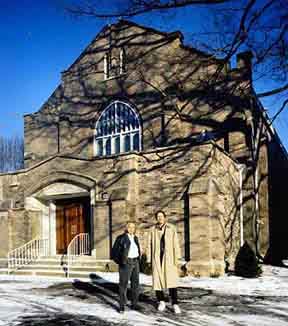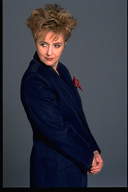
1200 17th Avenue South
 1200 17th Avenue South |
"In Italian, the musical term Da Capo literally means "from the head", and a quick glance at producer Jonell Polansky's resume leaves no doubt that she has a good one of those on her shoulders. You'll find a Master's Degree from Caltech in electrical engineering, stints at IBM and TRW doing, among other things, "advanced signal analysis and modeling," and a clutch of academic papers and talks to her credit. And in her five years in Nashville, the technical side of recording is where Polansky has made her initial mark, recently getting attention for completing the first 24-bit digital recording made in Nashville, a demo for singer Brian Eckert. Sony had just come out with a 24-bit tape recorder, and she had access to the all digital, 48-track studio at Ocean Way. "We wanted to see sonically if there was any improvement in increasing the bit rate and not altering the sampling rate," she says. "The question was: which benefits you more?" The jury is still out, she says, on that particular question, but she sees avenues in the 24-bit environment toward more specific tailoring of each individual track, and she's set on continuing research in this area. Of course there are two sides to every brain, and Polansky isn't stuck in her left hemisphere. For one thing, she has extensive background as a player (her homey office is decorated with a collection of magnificent electric basses). And she feels she has a knack for spotting promising artists and choice songs. She works with just a handful of artists at a time and strives to take them on a journey of self-discovery. Her approach involves a highly devloped personal relationship with her artists. She strives, she says, "to get in their head and to love them and empower them, so that they can get what they want." She grew up all over as a Navy kid and played folk and bluegrass guitar, but it was in Northern California where she got her engineering training. Classes with engineer Doug Hopping melded with her scientific background, her college major in technical theatre, and even some of the lessons she
 from Da Capo Music |